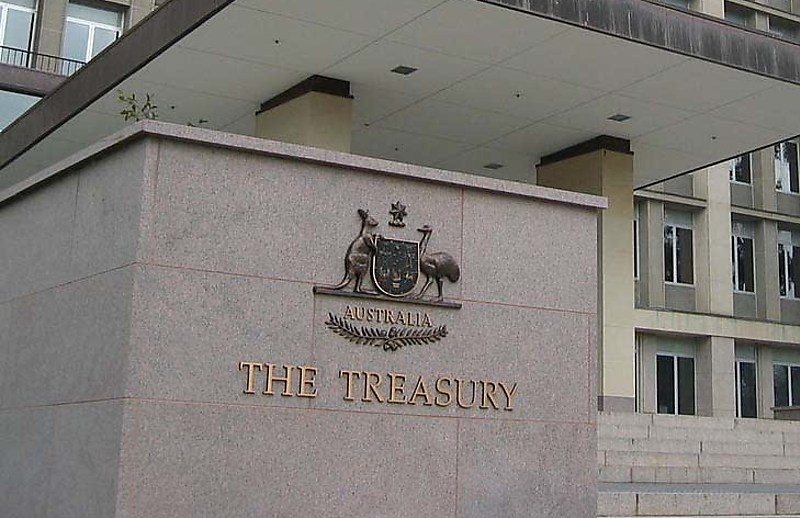Treasury weighs overhaul of TPB registration pathways
RegulationThe government will consider tightening the “fit and proper person” test and scrapping registration pathways with professional bodies in response to the PwC tax leaks scandal.

Practitioners seeking registration with the TPB could lose longstanding pathways and face a stricter "fit and proper person" test under further reforms proposed by the government in response to the PwC tax leaks scandal.
A consultation paper released on Wednesday also floated changes to company and partnership registration eligibility requirements and broadening the TPB's ability to accept alternative forms of relevant experience.
Assistant Treasurer Stephen Jones said the measures were necessary to enhance the TPB's regulatory framework and rebuild public confidence in the tax profession.
"The paper focuses on the education, qualification and experience requirements for new entrants and existing practitioners," he said.
"The proposals reflect the government’s commitment to strengthen our regulatory arrangements."
The consultation paper is the fourth of eight Treasury-led reviews rolled out in response to the PwC matter, resulting in increased penalties for promoters of tax avoidance schemes, enhanced information sharing between regulators and a new ministerial power to unilaterally change the tax agent code of conduct.
Jones' first exercise of the power at the start of the month saw the introduction of several controversial rules affecting practitioners’ disclosure, confidentiality and record-keeping obligations.
Treasury said its latest consultation paper targeted the TPB's registration regime to ensure it remained fit for purpose and aligned with the "contemporary tax practitioner services landscape".
Stricter "fit and proper person" test
It proposed expanding the "fit and proper person" test to close associates and employees and requiring the disclosure of spent convictions, adopting recommendations from a 2019 review to align standards with those of other financial regulators.
The current test requires practitioners to be of "good fame, integrity and character". Events in the past five years such as convictions for serious tax and fraud offences, as well as past penalties for promoter schemes and bankruptcy, are also considered by the TPB.
But the consultation paper suggested increasing the five-year limit on past misconduct and incorporating conflict-of-interest assessments into the vetting process.
It also floated mandating the disclosure of spent convictions in a move that would bring the TPB in line with legal profession regulators but potentially overlook the role of rehabilitation.
When the 2019 reviews were released, CPA Australia said tightening the test through prescriptive requirements raised "significant concerns".
"We believe it essential that the principles of proportionality, privacy, natural justice, and the opportunity for rehabilitation are maintained, and that the powers of the minister, TPB and ATO are appropriately contained," it said.
Proposal to scrap professional association accreditation and registration pathways
Treasury is also considering the removal of professional association recognition and registration pathways.
The paper said the removal of these pathways will improve the TPB's independence from the industry and "mitigate against actual or perceived risk of regulatory capture".
The changes would mean increasing the minimum education requirements for registration, with practitioners already registered under the pathway grandfathered similar to the special rule about pre-1988 tax agents in subsection 20-5(4) of the TASA, the consultation paper said.
"These tax practitioners would be subject to other non-qualification requirements being met, as well as the TPB’s standard renewal requirements, assuming they maintain their voting membership status with the recognised professional association."
The government said that professional membership would likely remain attractive to tax practitioners despite the removal of the registration pathway, given they offer continuing professional development and other membership benefits.
"Treasury also considers that the majority of tax practitioners who are eligible for registration under the RPA pathway would likely be eligible for registration through alternative pathways and thus removal of this pathway will not be a significant barrier to entry or remaining registered," the paper said.
Additional registration requirements for companies and partnerships
The consultation paper also proposed introducing additional registration requirements for companies and partnerships.
Companies and partnerships would be required to prove to the TPB that they have sufficient governance arrangements in place to ensure compliance with their obligations as a registered tax practitioner at the time of registration.
The requirement to have sufficient governance arrangements would be added to the existing registration eligibility criteria in sections 20-5 of the Tax Agent Services Act.
The governance requirement would relate to internal controls and quality management systems specific to the provision of tax agent and BAS services.
Treasury said the new registration requirement would align with the new TPB code requirements relating to quality management systems that had been separately implemented by the government.
"Treasury anticipates that the vast majority of companies and partnerships registered as tax practitioners would have already developed and implemented governance arrangements assisting them in carrying out their services and complying with the TASA," the paper said.
It also noted they would be required to do so under the new additions to the code commencing 1 August.
Broadening relevant experience requirements
The paper also explored amending the registration regime to provide the TPB with additional flexibility in accepting different types and periods of experience as relevant.
Treasury said this would address the current framework’s prescriptive rigidity and accommodate contemporary industry shifts in how tax practitioners work.
The paper has proposed two potential options:
- Allow the TPB to consider exceptions to the ‘relevant experience’ criteria on a case-by-case basis (Option 1).
- Increase the period in which an individual can obtain ‘relevant experience’ (Option 2).
It is proposed that any changes to the relevant experience criteria would apply to existing registered tax practitioners from their next registration renewal.
Consultation on the proposals is open until 7 August.



